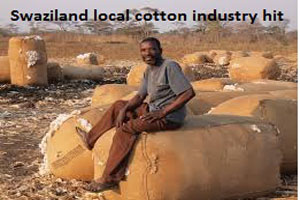
Swaziland local cotton industry hit due to decline of world prices
YarnsandFibers News Bureau 2015-09-18 12:00:00 – WashingtonCotton is the second major cash crop after sugarcane in Swaziland and the main source of income for small scale famers, especially those in drought prone areas. The cotton industry is currently under performing yet the cotton industry used to be a source of livelihood for 40 000 Swazis. Farmers grow cotton to pay school fees, build houses, buy food and clothes.
The decline of cotton prices in world markets has resulted to a price drop locally. Swaziland Cotton Board Chief Executive Officer Daniel Khumalo said that this was one of the numerous challenges faced by the cotton sector. The planting season this year would be October 1.
Meanwhile, the Cotton Board has commenced its seasonal training which entailed training of extension personnel from all cotton growing regions in Swaziland.
The CEO said that cotton closed season was a period where cotton field were expected to be without any cotton. Farmers would be expected to cut and burn all cotton stover.
This is according to Section 10 (1) (a) of the Cotton Act of 1967. It says the date for the whole of Swaziland, or different dates for particular areas thereof, before which all cotton plants shall be destroyed.
Khumalo said that the cotton close season was aimed at preventing carryover for disease from season to season, destroying all seasonal pest
through breaking the life cycle and eliminating cotton ratoon. He said that such a season also encouraged cultural control for cotton pest and diseases.
Market Intelligence
Ask for free sample Report

experience
Customer Base
dedicated team
Countries Served Worldwide









